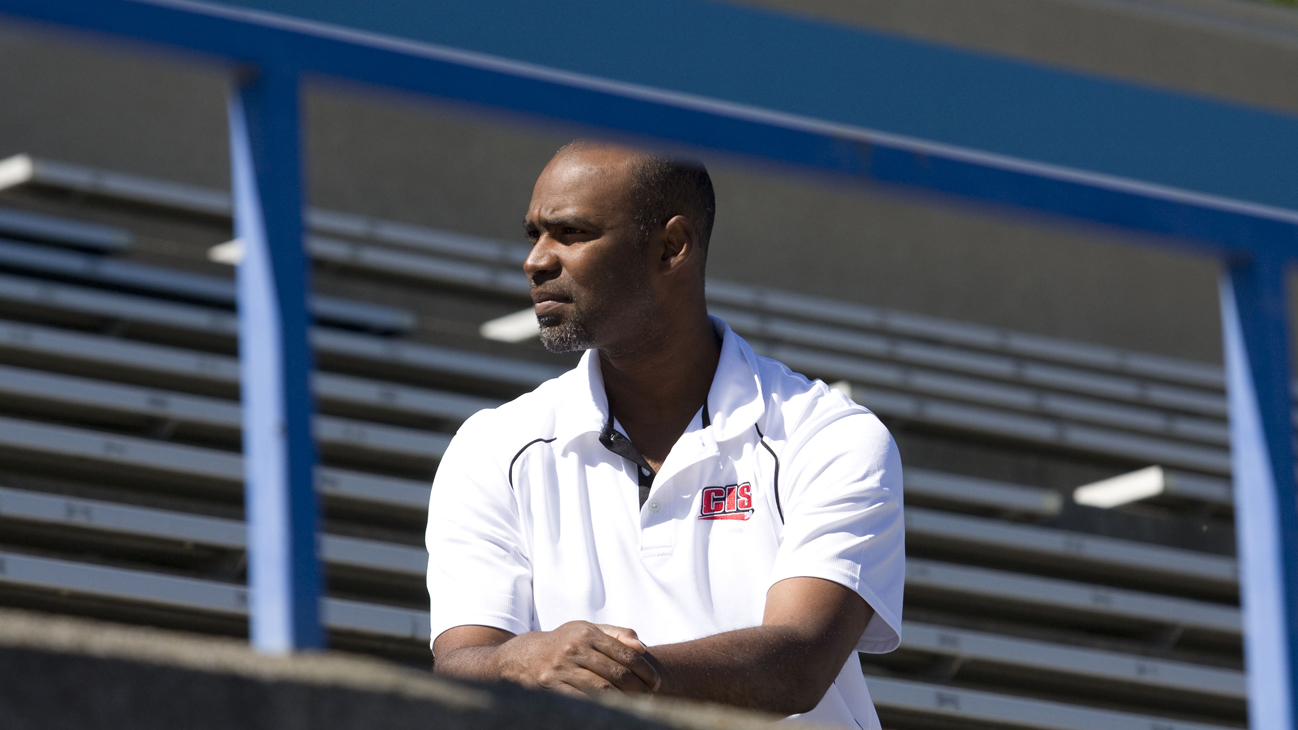People aren’t born with confidence. Confidence requires constant practice to build a belief in oneself, says Dr. Ivan Joseph, Director of Athletics at Ryerson University. He learned this lesson as a university soccer player, and has spent more than 20 years helping people build self-confidence.
He recalls the moment when he was benched by his coach. His girlfriend and now wife put it to Joseph, “Why are you letting this man, who knows nothing about soccer, tell you how good you are?”
“I had given my power away and let this man, even though he was nice, take away a belief in myself,” said Joseph. Today, he shares how he builds his own confidence, finds rest in a demanding job, and helps players and coaches challenge unproductive mental habits:
YouInc: Why have you made confidence your work focus?
Dr. Ivan Joseph: It is my life focus. I’m a first generation Canadian, but I immigrated here. When you have immigrant parents, especially if you’re a man of colour, you’re pushed to always do better. If you get 90, why not 95? If you finish second in the race, why not first? As much as that builds resilience, grit, and competitive drive and excellence, it also makes you feel like you’re never quite good enough. Then couple that with being kicked out of university, and embarrassed, shamed, and humiliated, and you realize your mindset moving forward will determine whether you’ll achieve whatever goal you set.
YI: How do you build confidence?
IJ: It’s what I tell myself. I try to make sure that anything I’m doing, I’m prepared for. I practice. It’s always about repetition, repetition, repetition. And then getting away from negative self-talk that can tear you down.
The other day I was trying to make a decision about an important budget initiative. It’s $50M that we’re dealing with here. I could go the left path or the right path, and I was so scared to make the wrong decision. I was concerned with what people were going to say about me if I failed. Then I had to realize there is no bad decision; the only bad decision is no decision. At the end of the day, stop worrying about what people are thinking. Make the decision and move forward.
YI: What techniques can people use when they feel frozen by decision making?
IJ: Do what’s known as a centering exercise. Clap your hands. Snap your fingers. Stomp your feet. Put your hand in your pocket and jingle your keys. Let that physical cue remind you, “Okay, get out of here negative thought,” and then replace it with the automatic positive thought, “I got this.” “You know what? I’ll get the next one.” “Hey, I can do this.” Whatever it is, replace it right away.
YI: How do you rest every day?
IJ: I need to and want to be alone. I have to be careful that I don’t isolate myself from my family and my kids. I’m a quiet person, even though everybody thinks I’m an extrovert. When I’m at work, I’m on display. People are like, “Oh, he’s a public speaker.” So, in order to get my energy back, I need down time. Down time for me is literally going into my room, and being there, and relaxing.
I’m going on a vacation by myself, white water canoeing down the Madawaska River in Ottawa. Not because I don’t love my family and my kids, but because that’s a semblance of me; nobody knows who I am, and I’m not on stage. I’m taking time to think and recharge.
YI: If you need to find a moment of rest even if it’s five minutes at work, what do you do?
IJ: I need to get out—sit on a bench, sit someplace in the sun, or go for a walk. I take a moment and get out of my office because you can’t rest in your workspace. Sometimes you don’t have the luxury of that. I have been known to lock my door, turn off the lights, and lay on the floor just for five minutes.
YI: How do you help players and coaches challenge unproductive mental habits?
IJ: You have to first recognize that everybody makes mistakes. Let’s say somebody made a mistake, and they kicked the ball over the net. The coach says, “Great job, great job.” Don’t do that. Don’t say that positive thing because, “I want to be a positive coach.” That’s disingenuous feedback.
As a coach, you must be authentic in your feedback. “Hey, I liked the decision to shoot.” Concentrate on the positives that might be true and accurate. “I love the way you ran in behind the line to get behind the defender. That was the right decision. That put you in the position to shoot. Don’t worry about the shot, we’ll take care of that technique later.” So, that’s a perfect example of how a coach can teach and create positivity.
As a player, it’s your job to help eliminate self-doubt and negative thinking. You’ll see when someone makes a mistake and their shoulders slump; they stop trying. Your job is to help them get over it, whether it’s a high five, a fist bump, a chest bump, or a hand on their shoulder. “Hey, don’t worry about it. We need you. You’re our best dribbler. You’ll get another chance.”
It’s not about the skills or your competencies, it’s about your belief and putting yourself out there to be considered.

